Juris Doctor (JD)
Why law at USask?
Our Juris Doctor (JD) degree program is an undergraduate program which provides the opportunity to pursue your legal education in a collegial and student-centered environment. A state-of-the-art teaching and learning facility, world-class faculty, innovative programs and course offerings combine to provide an extraordinary educational experience, preparing you for the exceptional opportunities of the future.
- Degree: Juris Doctor
- Length: 3 years
- Campus: Saskatoon
- Part-time option
- Non-direct entry program
Your USaskLaw experience
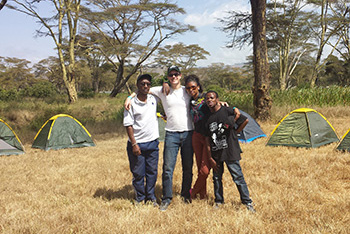
Exchange programs
Study at some of the top law schools in the world in Belgium, the Czech Republic, Finland, Norway, Sweden, or the United Kingdom. In recent years, our students have also gone to Australia, New Zealand, South Africa and Hungary. Studying law abroad allows you to learn about other legal systems and to gain international experience.
Certificate in French Common Law
Introduced in 2016, this certificate program gives incoming students with competencies in French the unique opportunity to obtain a Certificate in French Common Law from the University of Ottawa during the completion of their JD degree.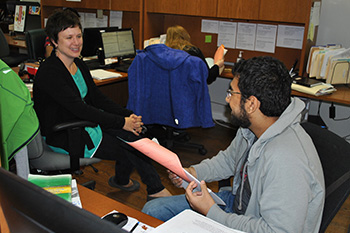
Clinical law at CLASSIC
The college collaborates closely with CLASSIC (Community Legal Services for Saskatoon Inner City Inc.), a community based legal clinic that provides free legal assistance to low-income clients. Participating in the clinical law program at CLASSIC gives you a chance to gain practical experience while providing you with new insights into the social reality of law.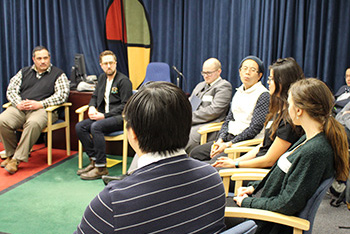
Access to Justice
The college offers a three-credit seminar class called Access to Justice. Students enrolled in this course have the opportunity to observe and interact with lawyers during a placement at one of many participating courts and tribunals in Saskatchewan and Manitoba. The college also boasts CREATE Justice, a newly-established centre for research, evaluation, and action on the topic of access to justice.
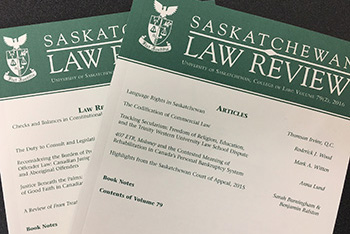
Saskatchewan Law Review
The Saskatchewan Law Review is a journal published at the College of Law and provides a range of opportunities for legal scholars and experts interested in publishing their work. As a student, you can submit work for review or serve on the editorial board.
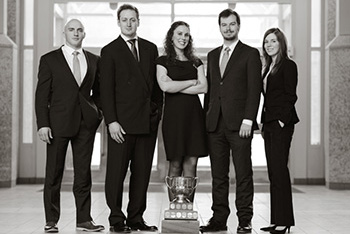
Mooting
Mooting is an important part of the college's academic and professional program. As a component of the first-year Legal Research and Writing course, all first year students will experience and participate in a moot. Mooting offers a forum for the development and presentation of legal arguments in the context of an appeal case, as well as a vehicle for the exercise of legal research and writing skills.Career support
The Career Development Office provides a variety of services and hosts a myriad of events to ensure you find the career that is right for you. These include On-campus interviews (OCIs) with some out-of-province law firms (specifically for recruiting first-year and second-year summer postitions) and professional development seminars to enhance your professional skills and assist you in your career planning.
Possible destinations
Having a Juris Doctor is a very versatile degree that offers a wide range of careers in private practice, public service, corporate, international and community based sectors.
Your career options
A Juris Doctor (JD) can take you almost anywhere. Of course, there is the traditional route of joining a legal practice, but in today's diverse and fast-paced job market, there are a multitude of less conventional options available to you as well.
PRACTISE LAW IN:
- Private law firms
- Government
- Legal aid clinics
- Corporations
PURSUE OTHER ROLES FIELDS SUCH AS:
- Policy advising
- International relations
- Real estate
- Counselling
- Mediation and arbitration
- Journalism
First-class amenities
The law building expansion in 2008 was the first project at the U of S to meet Leadership in Energy and Environmental Design (LEED) standards and allows for 57 per cent lower use of overall energy. The Dentons Canada LLP Student Lounge was built as part of the expansion to provide our students with a wide-open area for networking, receptions and the occasional game of foosball.
Estimated tuition and costs
| Canadian students | International students | |
|---|---|---|
| Tuition | $16,929 | $71,102 |
| Fees | $1,227 | $1,227 |
| Tuition and fees | $18,156 | $72,329 |
| Books and other fees (approx) | $2,500 | $2,500 |
Housing is not included in your fees. On campus residence options are available.
Join a distinguished group of alumni
As an alumnus of the College of Law, you will be part of a lifelong community of graduates who have gone on to become, among other things, accomplished academics, learned members of the legal profession across the country, diplomats and political leaders. College of Law alumni have held the positions of Prime Minister of Canada, Governor General of Canada and Premiers of Alberta and Saskatchewan.
Study law at the U of S and become one of approximately 120 graduates to join our alumni family each year.
Ready to apply?
Applications open November 1, 2023.
Approximately 126 students are accepted into the College of Law's first-year program at the Usask each academic year. However, the number of applications we receive greatly exceeds the number of seats available.
Admission to the College of Law is at the discretion of the college's Admissions Committee taking into account your academic record, Law School Admission Test (LSAT) score, and any other circumstances the committee deems relevant.
Past experience indicates that, as a general rule, successful applicants have an average of 80-82% in pre-law studies, and score 159 or higher on the LSAT.
Admission qualifications
The minimum requirement to enter our JD program is two full years (60 credit units) of undergraduate academic work at a recognized university or equivalent. There are no recommended pre-law programs or classes.
Applicants must also submit a current LSAT score and personal statement (max. 500 words).
